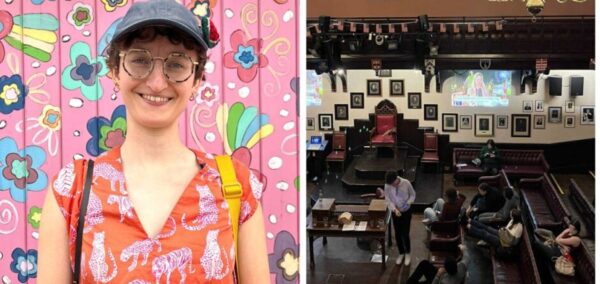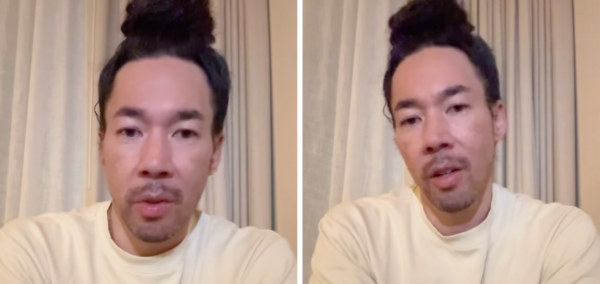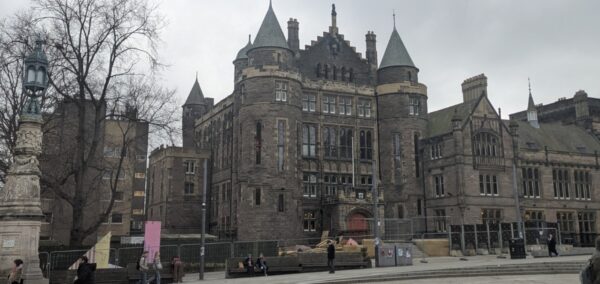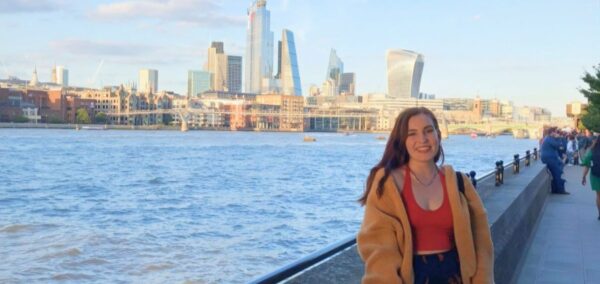
University of Glasgow lifts campus ban on student after protests over divestment
Hannah Taylor was barred from attended in person classes after she allgedly sprayed the JMS with water-soluble red paint
A student banned from the University of Glasgow’s campus following a pro-Palestine protest has had the decision reversed, allowing her to return to classes.
Hannah Taylor, a Master’s student in mathematics, had faced disciplinary action after supposedly taking part in a protest where the James McCune Smith Learning Hub (JMS) was sprayed with water-soluble red paint.
The protest, which took place in February, called for the university to divest from the arms trade.
Hannah, alongside another student, allegedly used a fire extinguisher to spray JMS with red paint and then were said to have glued themselves to the building’s façade. The protest was organised by Youth Demand, a group advocating for divestment from the arms trade.
The incident followed the claim made by the Glasgow University Arms Divestment Coalition, which stated that the university holds over £6.8 million in investments in the arms industry and has received significant research funding from companies like BAE Systems and Rolls Royce.
As a result of the protest, Hannah was initially banned from the university campus, a move that threatened her ability to complete her studies. Following public outcry, including objections from the University of Glasgow’s Rector, Dr. Ghassan Abu-Sittah, the university decided to lift the ban, though Hannah has agreed to refrain from engaging in or encouraging similar protest actions in the future.
Additionally, Hannah has agreed to pay half of the £2,844 clean-up bill for the damage caused to the university’s building.
The decision to lift the ban was welcomed by Hannah, who said: “The university has decided to remove my campus ban following a wave of public objections, including from the rector himself. They are beginning to see that they cannot ignore us any longer.
Most Read
“We have to keep advocating for divestment until they comply with our demands. No campus ban should deter a student from demanding justice for Palestine.”
Hannah’s protest is part of a wider movement on university campuses across the globe, with growing calls for divestment from the arms trade and criticisms of institutions’ involvement in the arms industry.
Last week, the University of Glasgow saw further demonstrations, including a building occupation and a hunger strike by students demanding the university divest from companies linked to the arms trade.
Dr. Ghassan Abu-Sittah, the university’s rector, strongly criticised the university’s response to Taylor’s protest, calling the campus ban “disproportionate and authoritarian”.
In a statement, he accused university leaders of succumbing to external political pressures to suppress student activism, particularly activism related to Palestine.
The University of Glasgow has seen heightened political tensions surrounding the ongoing conflict in Gaza, with students increasingly demanding that the institution sever its ties with the arms industry and divest its funds from companies involved in military production.
The university, however, has made it clear that it will not comment on individual student matters. In response to the protests, a university spokesperson reiterated the institution’s commitment to maintaining a safe and inclusive environment for all students while continuing to engage in dialogue on these important issues.
The reversal of Hannah’s campus ban has sparked further discussion about the limits of student activism and the university’s role in addressing political protests on campus. Despite the ban being lifted, student leaders remain determined to continue their advocacy for divestment, insisting that the university must be held accountable for its financial ties to the arms industry.






















